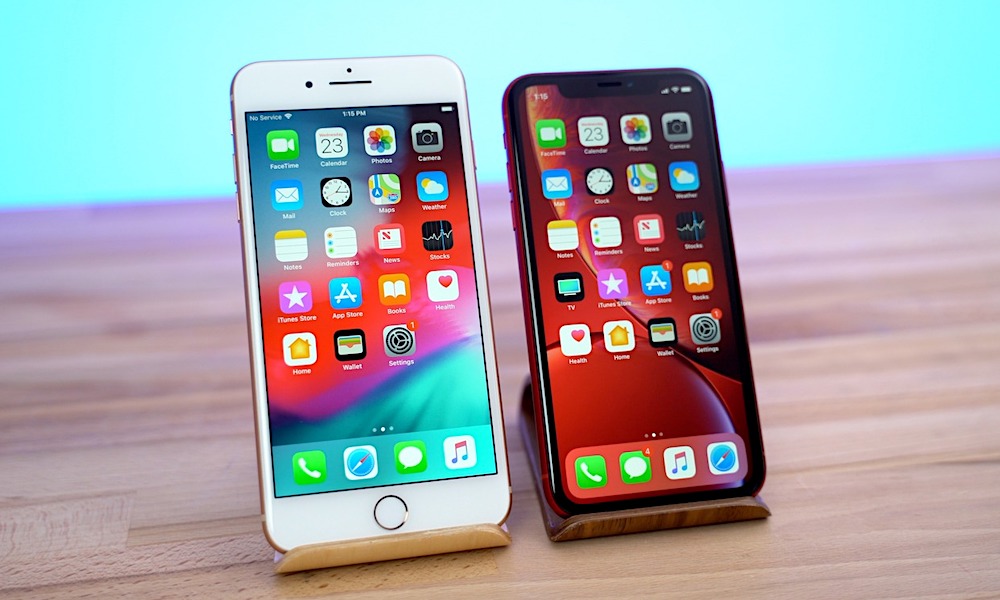Planning to Upgrade from an iPhone 8 Plus? DON’T Install iOS 12.3.2

Toggle Dark Mode
A couple of weeks ago, Apple released iOS 12.3.2, an odd little update that only applies to one specific model of iPhone — the iPhone 8 Plus. As the very minor version number would indicate, iOS 12.3.2 was a bug fix release, and it was pushed out to fix one very specific problem that was only plaguing some iPhone 8 Plus users.
Specifically, the release notes for iOS 12.3.2 indicated that it was released to “resolve an issue that could cause Camera to capture Portrait mode photos without depth effect on some iPhone 8 Plus devices.”
Since the fix only applies to the iPhone 8 Plus, Apple didn’t bother to release iOS 12.3.2 for any other models. After all, what would be the point of doing so?
Well, it turns out there would be a point, as Fun107’s Michael Rock discovered when trying to upgrade his iPhone 8 Plus to a brand new iPhone XS…
A Cautionary Tale
According to Rock, while backing up his iPhone 8 Plus in preparation for transferring his data over to his new iPhone, it suggested that he update his iPhone 8 Plus to the latest version of iOS, which of course in this case was iOS 12.3.2.
Before laying over $1,000 down for my brand new iPhone Xs, I backed up my iPhone 8 Plus into my iTunes. While doing that, I updated the software on the iPhone 8 to the latest and greatest version: 12.3.2. Doing this Apple recommended update has caused me more headaches than you can imagine. Updating my phone is going to prevent me from fully utilizing my brand new phone until further notice.
After setting up his new iPhone XS, for which the latest operating system software is iOS 12.3.1, he was unable to transfer the data over from his iPhone 8 Plus, since the original backup was made with a newer version of the iOS operating system.
The Problem
This has actually been a long-standing restriction on transferring data to a new iPhone — to avoid compatibility problems, the new device must always be running at least the same version of iOS that was on the original source device. It’s actually not uncommon for a brand new iPhone to have an iOS version that’s slightly behind simply due to the time between when an iPhone comes off the assembly line and when it’s actually sold into a customer’s hands.
In the past, however, the only real headache this created was that in some cases you might have needed to go through the setup process twice — once to set up the device as a new iPhone, without restoring a backup, just so that you could perform the software update, after which you had to wipe the iPhone and go through the setup process again in order to restore your actual backup. Thankfully, Apple has made this process much smoother in recent iOS versions, which now offer to automatically update your new iPhone to the matching iOS version before restoring your backup.
However, this only works if the matching iOS version is actually available, and in Rock’s case — and that of anybody else who has updated their iPhone 8 Plus to iOS 12.3.2 — that version simply doesn’t exist for other iPhone models. Since you can’t install something that doesn’t exist, this means that anybody switching from an iPhone 8 Plus to any other model is going to be stuck setting it up as new and not being able to restore their backup. As Rock points out, that kind of takes away the “I” part of the “iPhone.”
The Solution
Apple’s customer service reps have told Rock that there’s nothing that they can do to fix his problem, and technically speaking, from a support perspective, they’re sadly correct. The restrictions in question are built into iOS itself, and there are no simple workarounds that would allow a user to restore a backup to an iPhone running an older iOS version.
Technically speaking, however, Apple as an organization could easily fix this problem for Rock and other users; all it would need to do would be to release a “placebo” version of iOS 12.3.2 for all other supported devices. This would at least get the version numbers matching up so that users like Rock could install 12.3.2 on their new iPhones and be able to transfer their data.
While Apple could also simply choose to ignore very minor version numbers in the future, the potential for unforeseen consequences means that its unlikely to take that approach. Even though iOS 12.3.2 was a ridiculously minor update that shouldn’t have presented any compatibility problems with iOS 12.3.1, Apple’s set of checks and balances is understandable, and certainly when iOS 12.3.1 was released — which is the version where the problem exists in this case — Apple had no way of knowing what kinds of fixes might appear in an iOS 12.3.2 update, and whether those might cause problems exchanging backups with the older iOS version.
Unfortunately, however, with iOS 12.4 looming on the horizon, it seems like Apple may just force users like Rock to wait until that version is released. At that point, his new iPhone XS can be updated to iOS 12.4, allowing it to easily restore what will then be a backup from the older iOS 12.3.2. Further, since iOS 12.4 is technically still available in public beta (running parallel to iOS 13), the other option for users affected by this would be to sign up for Apple’s Beta Software Program in order to gain early access to iOS 12.4.






